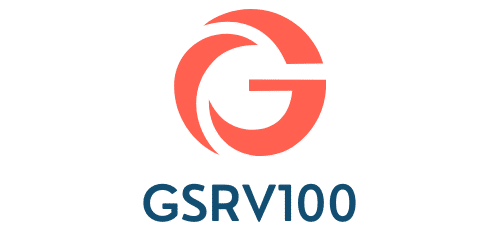How to use gamification to engage potential buyers in the real estate market?

In the high-stakes world of real estate, standing out in a crowded marketplace is absolutely vital. You need to capture your customers’ attention, and hold it long enough to convince them to choose your brand over others. But with so many marketing tactics already overused, how can you differentiate your brand while simultaneously engaging your customers? The answer lies in gamification.
In the following sections, we’ll explore what gamification is, how it can be used effectively in real estate marketing, and provide examples of successful gamified marketing campaigns. So, let’s deep dive into the world of gamified experiences.
A lire également : How to Develop Real Estate Projects That Cater to Remote Work and Digital Nomads?
The Power of Gamification
Before we delve into how to apply gamification in real estate, let’s take a moment to understand what it means. Gamification is the application of game mechanics to non-gaming environments, such as business or marketing. In a nutshell, it’s about making ordinary tasks more engaging by making them fun and rewarding. Gamified experiences are designed to motivate users to engage with your brand, by offering virtual rewards, social recognition, or the thrill of competition. It’s all about playing on the innate human desire to have fun, be recognized, and achieve.
In a marketing context, gamification can be used to drive customer engagement, foster loyalty, and ultimately increase sales. It’s a powerful tool that can make your brand more appealing to potential customers, and transform mundane transactions into memorable experiences.
A lire aussi : How to Leverage Pop-Up Spaces for Dynamic Urban Real Estate Development?
Gamification and Real Estate Marketing
In the world of real estate, marketing strategies often revolve around traditional methods such as property listings, open houses, and direct mail. But as the real estate market becomes increasingly saturated, these methods are no longer enough to distinguish your brand. This is where gamification comes in.
By incorporating game mechanics into your real estate marketing strategy, you can create an exciting and engaging experience that sets your brand apart. Imagine a virtual tour of a property that’s actually a treasure hunt, or a social media contest where users earn points for sharing your brand’s listings. These gamified experiences not only engage potential customers but also encourage them to interact with your brand in a fun and rewarding way.
Creating Gamified Real Estate Experiences
So, how do you go about creating these gamified experiences? It starts with understanding your customers. What motivates them? What do they enjoy? Once you have a clear picture of your target audience, you can design a game that appeals to them.
Suppose your target audience consists of young, tech-savvy professionals. In that case, a virtual reality property tour with interactive elements might be just the thing to catch their attention. Or if your customers are families looking for their dream home, a game that allows them to design their own virtual home might be more appealing.
The key is to create a game that is not only fun but also relevant to your customers’ interests and needs. This will ensure that they are genuinely engaged and more likely to remember your brand.
Successful Examples of Gamified Real Estate Marketing
To give you an idea of how gamification can be used in real estate marketing, let’s look at some successful examples.
One real estate company, for example, created a mobile game where users could virtually visit, explore, and decorate their dream homes. The game was not only entertaining but also allowed users to imagine themselves living in the homes, creating a sense of emotional attachment.
Another company used augmented reality to create a virtual treasure hunt, where users could find and collect virtual items in real-world locations. This not only generated buzz for the brand but also encouraged users to visit the company’s properties in person.
The Future of Gamification in Real Estate Marketing
As virtual and augmented reality technologies continue to advance, the possibilities for gamification in real estate marketing are almost limitless. Imagine, for example, a game that allows users to virtually walk through a property, interact with the environment, and even make changes in real time. This could provide a level of engagement and immersion that traditional marketing methods simply can’t match.
Moreover, as we move towards a more digitized world, the metaverse – a collective virtual shared space – opens up new opportunities for gamified real estate marketing. With the capacity to create virtual real estate tours, community-building games, or even entire virtual neighborhoods, the metaverse will revolutionize the way we buy and sell property.
In conclusion, in today’s competitive real estate market, standing out from the crowd is essential. Gamification offers an innovative and effective way to do this, by engaging customers in fun, rewarding, and memorable experiences. So why not start exploring the possibilities of gamification for your real estate brand today?
Implementing Gamification Software in Real Estate
With a clear understanding of what gamification is and how it applies to real estate marketing, the next step is implementing the right gamification software to make your ideas come to life. The good news is that there are plenty of options available that can help create an engaging experience for potential buyers.
Firstly, decide on the game elements that align with your target audience’s interests and your marketing objectives. These could include points, badges, leaderboards, or even narrative elements to get potential buyers invested in the experience.
For instance, you could have a system where potential buyers earn points for every property they visit virtually. As they accumulate points, they could earn badges reflecting their status as ‘Novice Home Explorer’, ‘Experienced House Hunter’, etc. This not only makes the process of house hunting more enjoyable but also instills a sense of achievement and progress.
Moreover, some gamification software allows for social media integration, making it easy for users to share their achievements and encourage others to join in. By leveraging social media, you can increase your brand’s exposure and create a community around your brand.
It’s essential to choose a gamification platform that is flexible and customizable to meet your real estate business’s unique needs. Remember, the goal is to create a game that mirrors the real-world process of buying a house while adding a layer of fun and engagement.
Measuring the Success of Your Gamification Strategy
Any marketing strategy is only as good as the results it produces. Therefore, it’s crucial to have mechanisms in place to measure the success of your gamification strategy.
Key metrics to track could include the number of new users, the amount of time users spend engaged with your game, social media shares, and of course, the increase in sales or property viewings. Analyzing these metrics will give you valuable insights into your customers’ behaviors and preferences, allowing you to fine-tune your strategy and maximize engagement.
In addition, customer feedback is an invaluable source of information. Encourage users to share their experiences and suggest improvements. This will not only provide you with ideas for future updates but also help to foster a sense of community and customer loyalty.
Conclusion: Embrace the Future of Real Estate Marketing
The world of real estate is rapidly evolving, and those who fail to adapt risk being left behind. Harnessing the power of gamification presents a unique opportunity to engage customers in a whole new way and distinguish your brand in a crowded market.
By implementing game elements into your marketing strategy, you can transform the process of buying a house from a stressful task into an enjoyable and memorable experience. Ultimately, this approach can boost customer engagement, foster customer loyalty, and increase sales – a win-win situation for everyone involved.
So, whether you’re a seasoned professional in the real estate industry or a newcomer looking to make your mark, it’s high time to consider adding gamification to your marketing toolkit. Remember, it’s all about creating fun, rewarding experiences that resonate with your potential buyers. So why not take the leap and explore the exciting world of real estate gamification today?
